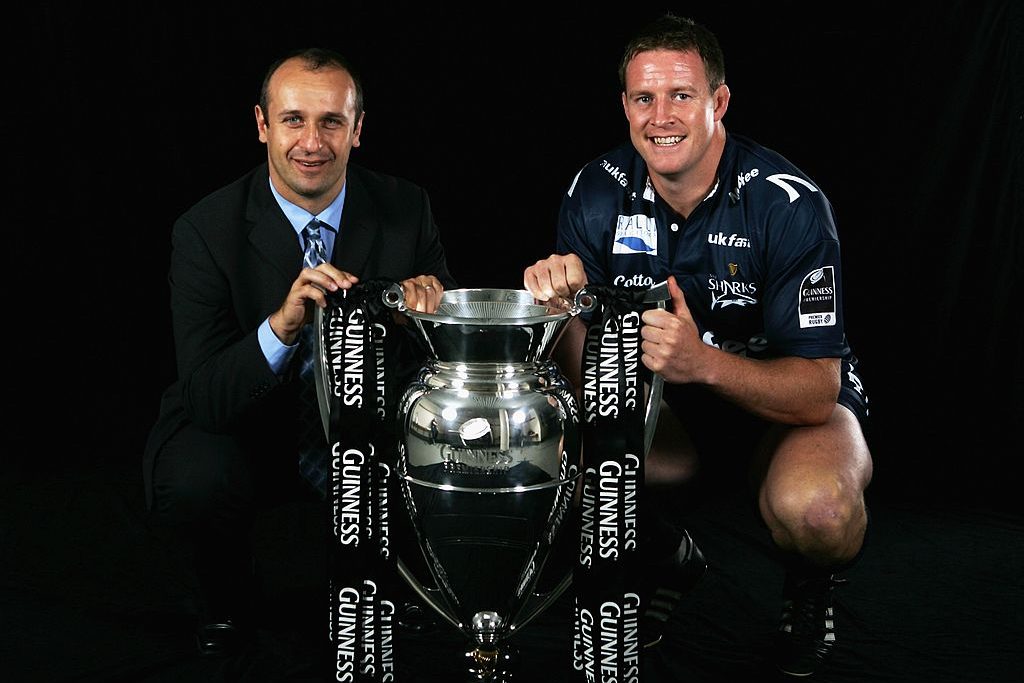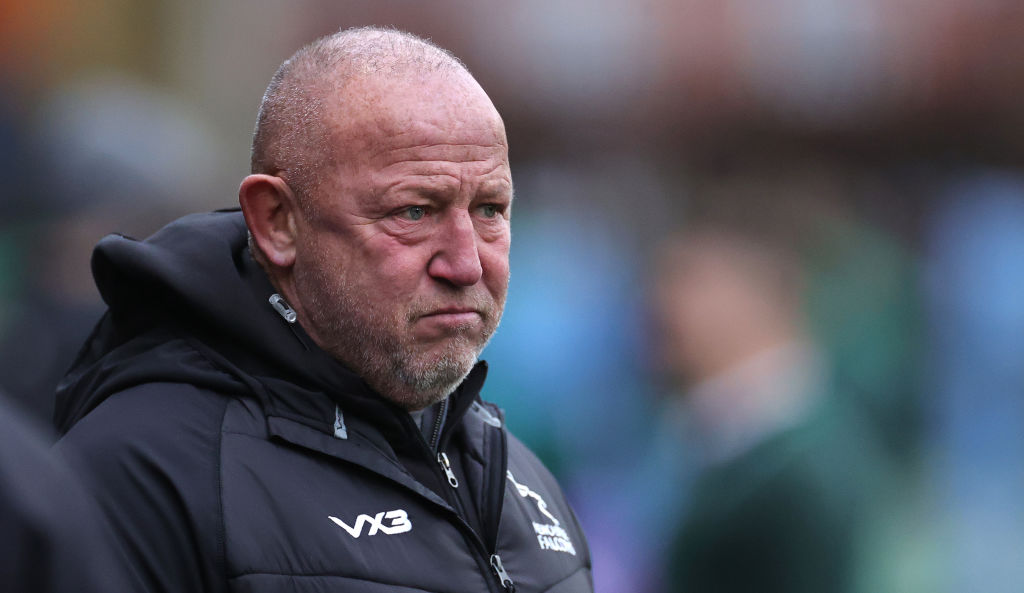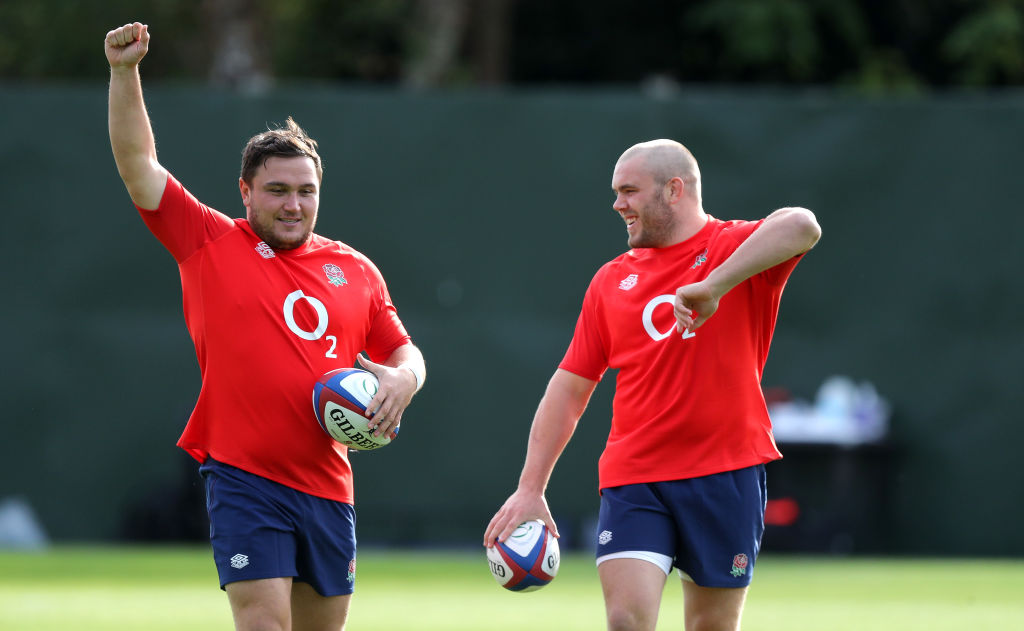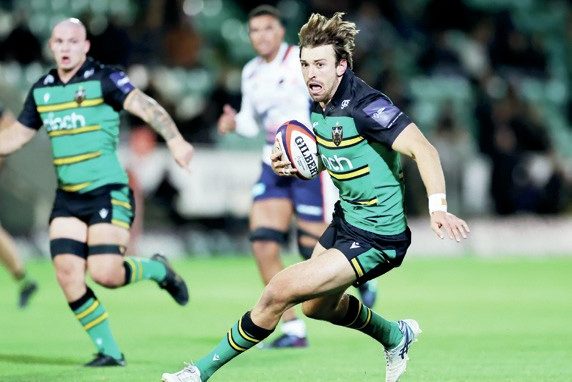 London Welsh boss Lyn Jones has been armed with a war-chest to sign eight “headline players” who will underpin the club’s first ever Aviva Premiership campaign.
London Welsh boss Lyn Jones has been armed with a war-chest to sign eight “headline players” who will underpin the club’s first ever Aviva Premiership campaign.
And that list could even offer a final chance for Gavin Henson.
After successfully overturning an RFU edict denying them a top-flight place, the Exiles now have just two months to assemble a squad capable of surviving.
But chief executive John Taylor is bullish about their chances and confirmed out of contract players such as ex-Gloucester wing Tom Voyce are on the club’s radar.
“We’ve been planning on two levels for months,” Taylor told The Rugby Paper. “We’ve got seven or eight places to fill and they’ll be headline players – starting players rather than squad members.”
Jones has a proven track record with Henson, having won two Celtic League titles and the Anglo Welsh crown together.
Taylor added: “Lyn knows Gavin very well and has got the best out of him in the past.
“With all of Gavin’s issues off the pitch I would say the odds are against him.
“It would have to be a realistic financial deal and Gavin would have to demonstrate he is prepared to be a team player and has the appetite to get back to the top.
“There are players who still do not have clubs and people like Tom Voyce are on our radar, although whether we necessarily want him I can’t say.
“We have a list of available players and on Monday we shall have a war cabinet to decide who we want.”
Jones is thrilled to be back in top-flight rugby four years after leaving the Ospreys and insists that immediate relegation is not the formality many people will predict it to be.
“We’ve looked at Worcester‘s results last season, at how they did after coming up, and I don’t think we’re a million miles away,” Jones said.
“It’s stepping up a league, we know that and we know how difficult it is, but that’s why you’re in the game and we want to be pushed.
“We are late in the day given we didn’t know what league we’d be in, but we’ve got spaces to fill and we’re going to target players and sign them.
“We don’t need too much. We’ve got a good squad of boys who’ve learnt what professionalism is about and we just need to keep teaching them.
“The big difference next season is there are sides who have world-class players and they’re going to be difficult to deal with.
“But our players have shown great ambition, this is where they want to be and I’m just here to help them. It’s a challenge I’m really looking forward to.
“Coaching at this standard is something I’ve done for a long time and it doesn’t hold any mysteries. I’m just pleased for the players and the club that we’re here.”
Taylor confirmed that Jones will also have money to strengthen his backroom team, with the appointment of an assistant coach a priority.
Collin Osborne, the Harlequins backs coach, helped out on a part-time basis last season, but that arrangement will no longer be possible.
Taylor says he wants to make Oxford’s Kassam Stadium – the ground they will share with Oxford United – a fortress, adding: “It’s a great stadium and Oxford has been identified as a place that can support Premiership rugby, so we want to capitalise fully on that.
“One thing we will not be doing, though, is changing our name.
“We’re London Welsh, not Oxford Welsh and that will never alter.”
Martyn Thomas, former RFU chairman and chief executive, welcomed the landmark judgement by three QCs, James Dingemans, Ian Mill and Tim Ward
He said: “Fundamentally, this goes back to the agreement between the RFU and the Premiership in 2000, when the Premiership clubs got the upper hand in the negotiations leading to a set of criteria that were flawed in terms of protecting promotion and relegation. As a result of that, the RFU has fought a rearguard action ever since.
“In this instance it is UK and the European competition law that has scuppered the Premiership ground criteria, and I am incredibly encouraged by this. It is brilliant news.
“It is clear that there have to be minimum ground standards, not least because of the investment in rugby by broadcasters, but my view is that the conditions put in place by the Premiership were unfairly restrictive, and aimed at creating a ring fence.
“If professionalism had occurred in the Seventies rather than 1995, then London Welsh would have been part of the club elite in England without a doubt. Many of the clubs that are now part of the Premiership elite are in that position simply because they were there in a snapshot of time when the game went professional in 1995. Other than that there is no justification for them to become ring-fenced as the only franchises for professional rugby in England.
“The great thing about this judgement is that for once the law, and the principle of being rewarded for what you do on the pitch, has coincided.
“The RFU and the Premiership should sit down and agree an equitable set of rules on promotion and relegation but Premiership Rugby is unlikely to do that. It is likely they will seek legal advice to limit the effect of this judgement.
“The RFU needs to hold firm and have the greater interests of Rugby Union in this country at heart.”
NEALE HARVEY


British and Irish Lions
Charlie Elliott: The 17 backs I would select for the British and Irish Lions





















You must be logged in to post a comment Login